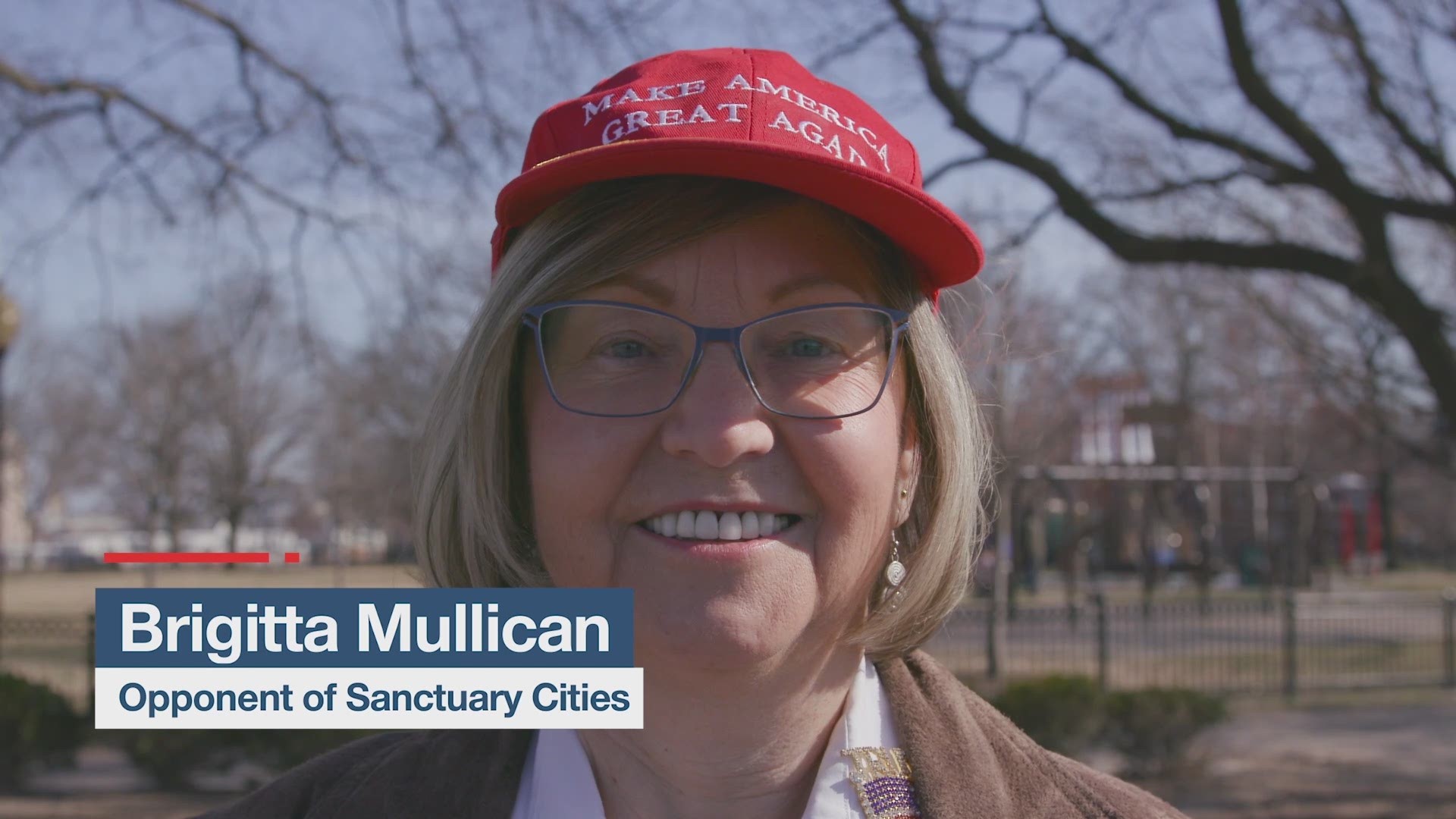BALTIMORE — Should local law enforcement cooperate with federal immigration officers when it comes to undocumented immigrants?
Two immigrants discuss the question in Baltimore, Maryland.
Brigitta
Brigitta Mullican came to the United states with her family in 1956. She was 7 years old.
“My father was born in Breslau, which was Germany,” she said. “I was told that the Russians came in and took over and obviously they became refugees.”
Before her family was able to come to the United States, Mullican described difficult living conditions with lack of housing and food shortages.
“My two brothers and I were put in an orphanage,” she said. “I was having difficulties getting answers from my parents about it. My my cousin said, ‘oh I was in that same orphanage.’ She said that's what parents did when they couldn't feed their kids.”
“When people talk about, they come from an area, you know, that's bad, I can understand some of their issues. However, we came here legally. And I believe that's how people should come here,” Mullican said. “I have real issues with people coming to this country without following our laws and order and I think it’s very, very important that all law enforcement support the federal immigration laws.”
Jim
Jim is an immigrant from China. He came to the United States when he was 3-years-old. Jim asked An Imperfect Union to only use his first name because he was concerned he would be targeted for his views; he also had family in China and wanted to protect them.
“I believe that sanctuary cities are an important first step to protecting our communities, he said. “At its simplest, sanctuary cities mean that local government officials focus on local business. They're not there to try to manage federal law.”
Jim said he considered himself lucky, being able to live in the U.S.
“I've had plenty of life's benefits,” he said. “I got to grow up in this country. My parents are really good to me and have raised me well. I hope I make them proud. I've gotten to go to some of the best schools in the country. Yeah, I've been really, really lucky.”
Jim and Mullican met at a park in Baltimore to discuss their positions about sanctuary cities and whether local law enforcement should help federal immigration officials.
Mullican said she wanted local police to cooperate with Immigration and Customs Enforcement (ICE).
“Of course, they don't want to work with ICE,” Jim said. “They're not ICE officers, right. They're local PD officers. I mean we're talking about something that's like basic, that was basic in both East Germany and China. I, actually, can't believe why you would think that this is up for debate. Like people there, were, in East Germany's case, are still in China's case, being held without cause. And you're basically recommending for the same thing to happen here. How does that justifiable to you?”
“I don't agree with comparing East Germany or communism or China to America. It's totally different. I cannot compare that,” Mullican responded.
“It's not different if you're advocating for the same kind of legal mechanisms?” Jim asked.
Watch how the debate unfolded in this week’s episode of An Imperfect Union for Facebook Watch.
Can't see the episode above? Click here.
An Imperfect Union brings together two people on opposite sides of an issue to work on a project in their community. Watch full episodes on Facebook Watch every Wednesday at 8 p.m. ET.

